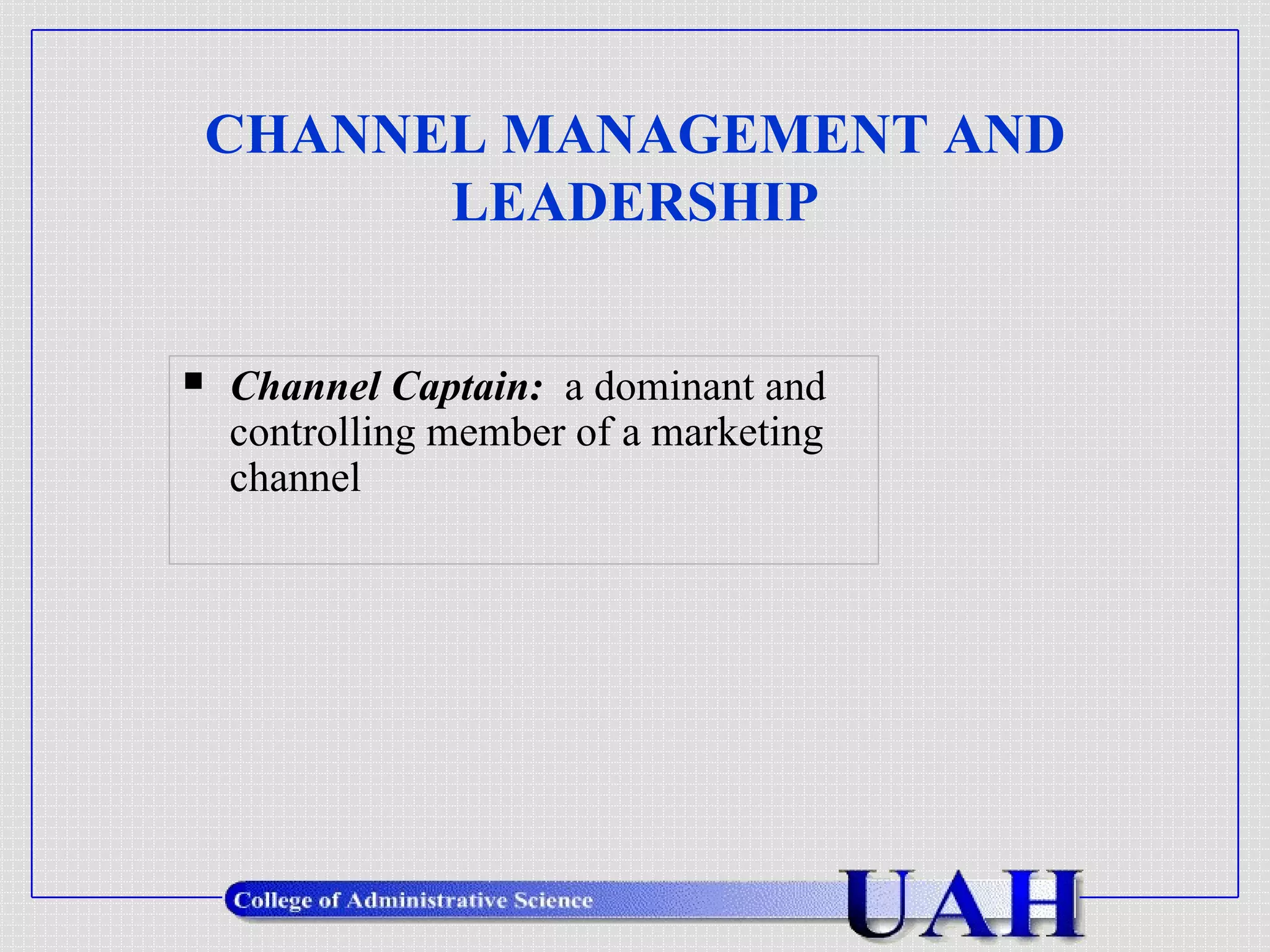The document discusses different types of marketing channels that can be used to move goods from producers to consumers or business users. It describes direct channels, intermediaries like wholesalers and retailers, and factors that influence the selection of marketing channels, such as characteristics of the product, market, and producer. Vertical marketing systems are also introduced as planned channel systems used to improve distribution efficiency.




























